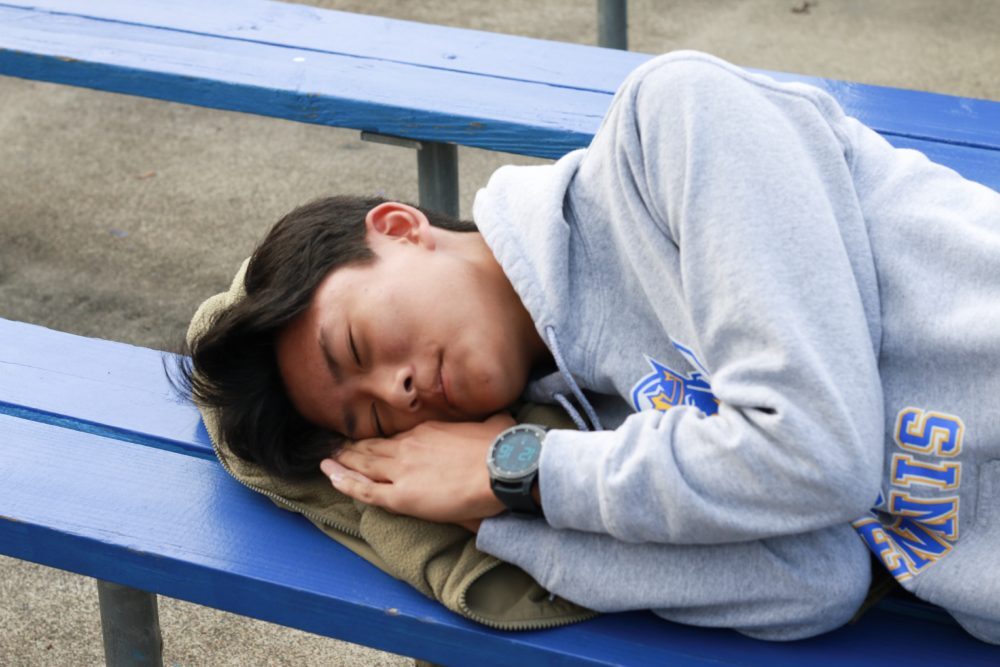
By Jessica Nguyen
If you are constantly feeling tired after school, then naps may be a solution. Whether they are 30 minutes or two hours long, there are many benefits to taking naps.
Teenagers need about seven to nine hours of sleep every night to be healthy. Sleep is cumulative and when you lose an hour of sleep, you’ll feel tired the next day. Sleep loss adds up and leads to “sleep deficit”, which can impact your information processing, short-term memory, performance and mood.
You can make up sleep deficit by sleeping more on the next day, but only if you’ve lost a few hours. For example, if you’ve lost over 20 hours over five weekdays, not all of the sleep will be made up during the weekend whereas you would be able to make up a deficit of about five hours or less.
Many teenagers lose sleep and accumulate massive sleep deficit and that’s where naps come in. Naps provide different benefits depending on how long they are.
A stage two nap, or a 20-minute nap, helps improve motor skills and attention. A 60 to 90-minute nap, which causes rapid eye movement (REM) sleep, which helps the brain process information and make connections.
Naps can also improve your immune system by preventing sleep deprivation. Sleep deprivation can decrease the production of cytokines (proteins that help you sleep) as well as hormones that protect your body when you’re injured or stressed.
And if you are constantly feeling cranky and need caffeine to wake you up, napping is a natural way to wake up and feel refreshed and less moody.
C
On the other hand, if you have an inconsistent napping schedule, naps can cause sleep inertia, or the feeling of grogginess and disorientation, although the effects only last several minutes to half an hour. While sleep inertia doesn’t affect your overall health, it makes it harder to wake up and be productive. Long, unplanned naps or naps taken near your sleep time also can affect the quality and length of your actual sleep time.
Types of naps
There are three types of naps: planned, emergency and habitual.
When you begin to feel tired, planned napping is a way to help you feel more awake if you know that you will be staying up past your regular sleeping time. If you suddenly feel very tired and drowsy, emergency napping makes you more alert so that when you wake up, you feel rejuvenated and ready to go. The last time of napping is habitual, which is when you take a nap at the same time every day.
Tips for napping
Make sure to set an alarm so that you don’t oversleep and become groggy. For short-term alertness, 20 or 30 minutes are the best. The best time to take a nap is around 3 p.m. so that your nighttime sleep isn’t impacted.
So, the next time that you are feeling tired, need to pull an all-nighter, relax and remember something, try taking a nap! You will definitely nap regret it!





